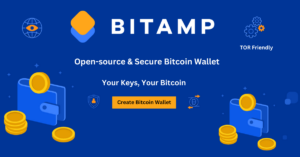 Bloomberg analyst sees bleak future for Solana ETFs amid current SEC climate
Bloomberg analyst sees bleak future for Solana ETFs amid current SEC climate Bloomberg analyst sees bleak future for Solana ETFs amid current SEC climate
Although the issuers filings are still active, Eric Balchunas doesn't believe a Solana ETF approval will happen this year unless a change occurs on SEC's leadership.

Cover art/illustration via CryptoSlate. Image includes combined content which may include AI-generated content.
Chances of a Solana (SOL) exchange-traded fund (ETF) being approved in the US this year are equal to “a snowball’s chance in hell” unless there is a change in leadership in SEC leadership, according to senior Bloomberg ETF analyst Eric Balchunas.
Balchunas highlighted in an Aug. 20 social media post that the 19b-4 forms filed for Solana ETFs by the Chicago Board Options Exchange (Cboe) were never acknowledged by the SEC. Thus, Cboe withdrew the forms, although the S-1 forms filed by the issuers are still active.
Notably, 19b-4 forms are filed to provide necessary information for the public about a proposed rule change, such as the listing of an ETF. Meanwhile, the S-1 form is a request by the SEC that must be approved so an issuer can publicly offer new securities.
In response to further questions, Balchunas added:
“Yes, near-zero chance [of approval] in 2024 and if Harris wins there’s prob near-zero chance in 2025 too. Only hope IMO is if Trump wins.”
Solana ETFs still in play
Despite the removal of 19b-4 forms, VanEck head of digital assets research Matthew Sigel said the firm’s application for a spot Solana ETF is still active.
VanEck and 21Shares filed applications for spot Solana ETFs in June, with Sigel saying at the time that it was a bet on former President Donald Trump winning the upcoming elections.
Moreover, Sigel reiterated that VanEck views SOL as a digital commodity instead of a security. He added that Solana’s decentralized structure, combined with its utility and economic role, positions it alongside digital commodities like Bitcoin (BTC) and Ethereum (ETH).
Sigel argues that Solana’s potential commodity status is enough to justify its own US-traded spot ETF.
However, Bloomberg ETF analyst James Seyffart highlighted that the SEC has been making a point “in the courts and elsewhere” about SOL being a security, even if Ethereum is not.
The regulator recently filed an amendment in its lawsuit against Binance to avoid a court ruling on the security status of tokens like Solana. The amendment aims to prevent a legal classification of these assets, leaving their regulatory status uncertain.
The SEC’s move follows a recent court ruling that secondary sales of digital assets like Binance’s BNB token do not qualify as securities. Binance has pushed back and refused to start discovery until the amended complaint is reviewed. The exchange has also criticized the SEC’s approach as premature.
Mentioned in this article
 Solana
Solana  Bitcoin
Bitcoin  Ethereum
Ethereum  BNB
BNB  21shares
21shares  VanEck
VanEck  Cboe Global Markets
Cboe Global Markets  Binance
Binance  Eric Balchunas
Eric Balchunas  James Seyffart
James Seyffart 




 Farside Investors
Farside Investors 









































































































